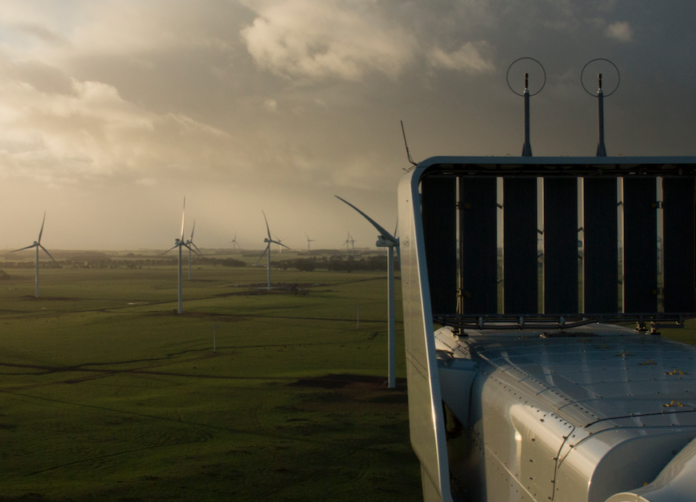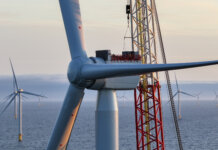A coalition of industry and academic leaders have developed a new technology to enable circularity for thermoset composites, the material used to make wind turbine blades.
The new technology delivers the final technological step on the journey towards a fully recyclable wind turbine value chain. To enable the adoption of this new technology, and to advance a circular economy across the wind industry, a new initiative entitled Circular Economy for Thermosets Epoxy Composites (CETEC) has been established. Within three years, CETEC is aiming to present a fully scoped solution ready for industrial adoption, based on the commercialization of the novel circularity technology.
Partly funded by Innovation Fund Denmark (IFD), CETEC is spearheaded by Vestas, a provider of sustainable energy solutions, and involves both industrial and academic leaders including Olin, a producer of epoxy, the Danish Technological Institute (DTI) and Aarhus University.
Developed by DreamWind, an innovation initiative driven by the same partners, the new technology consists of a two-step process. First, thermoset composites are disassembled into fiber and epoxy. Then, through a novel chemcycling process, the epoxy is further broken up into base components similar to virgin materials. These materials can then be reintroduced into the manufacturing of new turbine blades, constituting a new circularity pathway for epoxy resin.
Wind turbines are 85-90% recyclable, with turbine blade material constituting the remaining percentage that cannot be recycled, due to the nature of thermoset composites. CETEC is aiming to close this recycling gap and enable a significant step forward in the elimination of waste across the wind energy industry.
“As global commitments to a net-zero future increase, it’s crucial to ensure the wind industry can scale sustainably, which includes Vestas fulfilling our ambition to produce zero-waste turbines by 2040,” says Allan Korsgaard Poulsen, head of sustainability and advanced materials at Vestas. “Leveraging this new technological breakthrough in chemcycling epoxy resin, the CETEC project will be a significant milestone in Vestas’ journey towards achieving this goal and in enabling a future where landfills are no longer required in blade decommissioning.”
CETEC’s solution will address the lack of available recycling technology for epoxy resins. This would in turn create the possibility to introduce new recycling solutions to the wind industry. This holds significant potential for commercial value capture, particularly in markets where regulation around waste management for manufacturing industries is tightening to serve a broader sustainability agenda. When fully developed, the solution may also have an impact on other industries that rely on thermoset composite in production, such as automotive and aviation.




